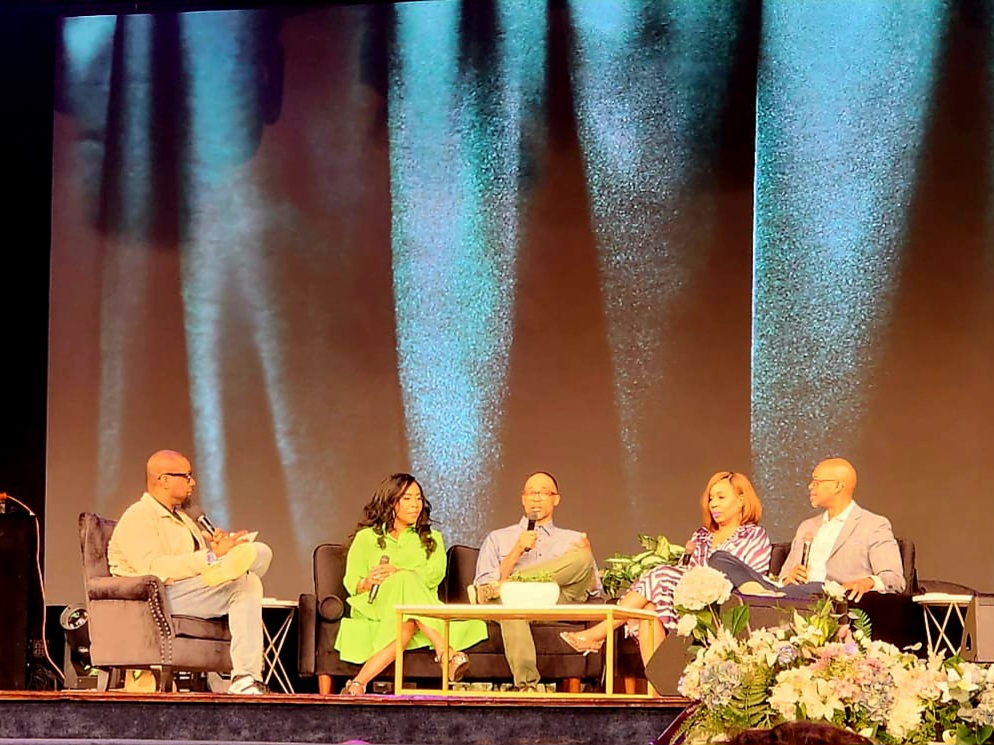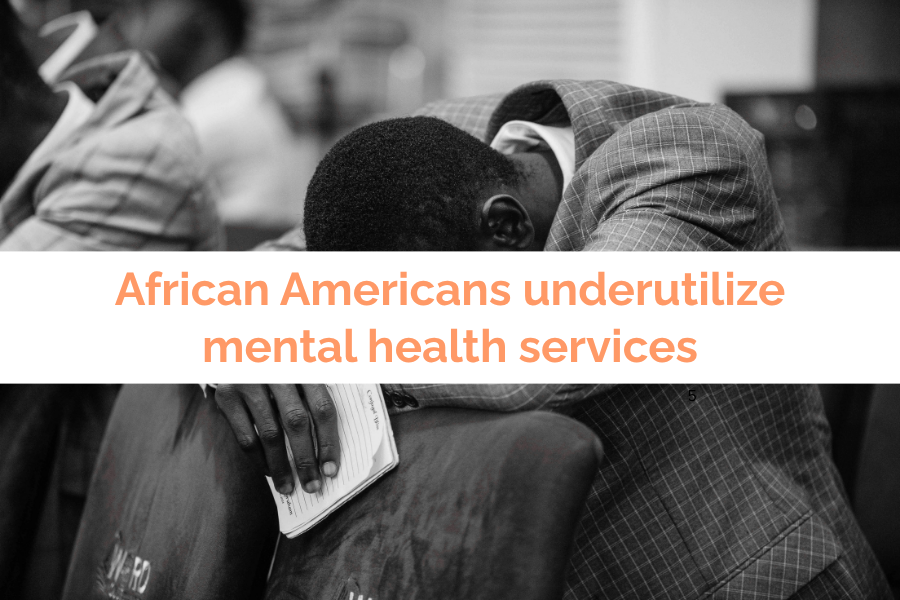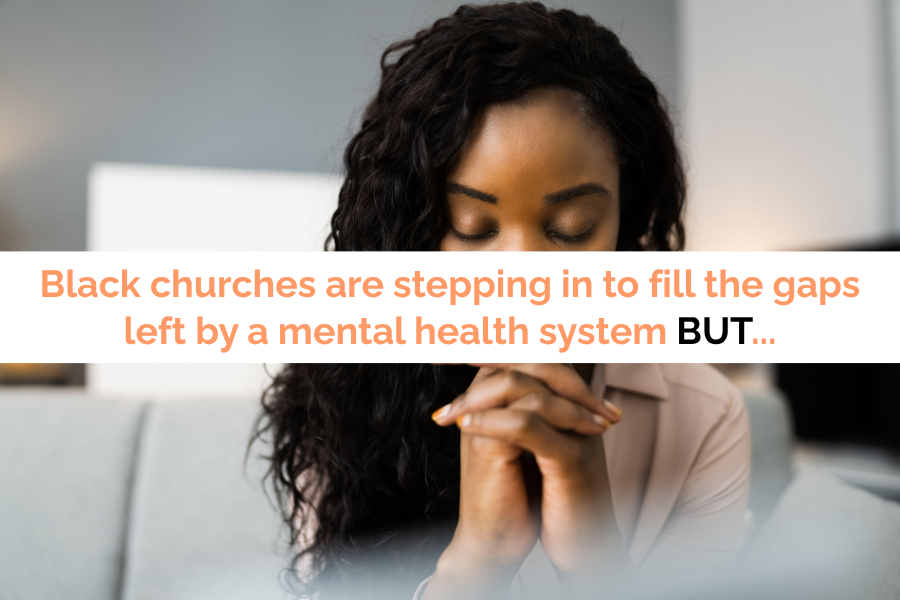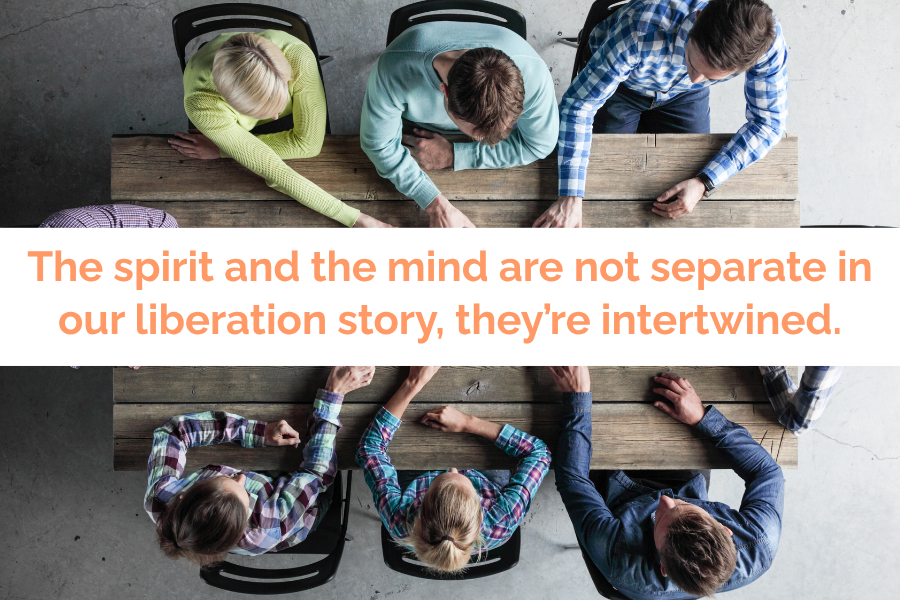On May 17, 2025, my church, the Christian Cultural Center in Brooklyn, New York, held its first-ever Mental Health Conference, an event that brought healing conversations to the forefront of our faith community.

As I sat on a panel about grief, speaking earnestly about loss and restoration, I couldn’t have known that just 2.5 weeks later, my own mother would pass away unexpectedly.
That experience reframed everything I thought I knew about mental health, faith, and the emotional tools we’re given or often denied by our spiritual institutions. The work of bridging faith and therapy is deeply spiritual and urgently practical.
This July, as we observe Minority Mental Health Month, we must reckon with both the deep cultural stigma and the powerful spiritual opportunity within the Black church’s relationship with mental health.
A Sacred Trust, An Unspoken Need
Black churches have long been sanctuaries for our people — safe spaces for spiritual and communal restoration in a country that has consistently denied us justice, freedom, and dignity. But when it comes to mental health, that sacred trust often stops short.
There are historical reasons for that.
Research shows that African Americans underutilize mental health services compared to white Americans, often because of institutionalized racism, frequent misdiagnoses, and a lack of representation in clinical settings (Dempsey, Butler, & Gaither, 2016).

These barriers have fueled deep-rooted distrust in mental health institutions, making the Black Church one of the few culturally trusted spaces for emotional and spiritual support.
Within this context, many clergy engage in what’s known as biblical counseling, using scripture to help congregants navigate anxiety, depression, and grief. But that same 2016 study reveals some critical gaps:
- Female Black clergy talk about mental health more openly than male clergy.
- Older pastors are less likely to refer people to licensed mental health professionals.
- Leaders with higher levels of education, especially doctoral degrees, were more likely to provide general and depression counseling.
These data point to the need for greater mental health literacy among church leaders… not to replace biblical wisdom, but to expand the support tools clergy can use.
Because the reality is: faith alone is not always enough.
What the Data Says: Where We Are Now
A comprehensive 2018 study published in Psychiatric Services found that only 23% of U.S. congregations offer mental health programs even though nearly 1 in 5 adults experiences mental illness each year. (Source)
Encouragingly, congregations in predominantly African-American communities were more likely to offer mental health support, and those that did so had a few things in common:
- Employed staff for social services
- Conducted health-focused education programs
- Assessed the needs of their communities
- Invited speakers from outside social service organizations

This shows that many Black churches are stepping in to fill the gaps left by a mental health system that too often excludes or misunderstands us. But without strong partnerships with licensed therapists, clinicians, and trauma-informed practitioners, the Black Church can become a kind of spiritual triage center — doing what it can, but without all the resources it needs.
The Call – From Preaching to Programming
At our May conference, CCC began answering this call. We brought together pastors, therapists, counselors, and community members to start unlearning stigma and building capacity.
We faced hard truths:
- Some folks in our pews are suffering in silence,
- Prayer alone isn’t always enough,
- And trauma, especially Black trauma, is real and generational.
The irony of my participation in the grief panel is not lost on me. But perhaps it was divine preparation. My mother’s sudden passing exposed a familiar emotional disconnect for many believers.
We’re taught to “trust God,” but we’re rarely given space to feel through our pain with professional support.
It’s time to change that!!!
Faith AND Therapy: Not Either/Or
For too long, many Black churches have operated under a false binary: that you can either rely on God or rely on therapy. But the truth is this – mental health care and spiritual care are not at odds. In fact, they can be sacred partners in healing.

Imagine what’s possible if:
- Clergy are trained to recognize clinical symptoms and refer people to professionals
- Therapists understand and honor the spiritual practices of their Black clients
- Mental health care becomes a natural part of Christian discipleship and growth
As the research shows, congregations that intentionally engage with their communities and invest in social service infrastructure are more likely to offer mental health programming.
That’s not random, not accidental… that’s missional.
Reimagining the Role of the Black Church
To truly bridge the gap between faith and mental health, Black churches need to take action:
- Normalize therapy from the pulpit. When pastors speak openly about their own struggles, it gives others permission to seek help.
- Host regular mental health workshops. Just like revivals, we can create space for emotional healing.
- Partner with Black therapists. Especially those who understand faith and culture, because representation matters.
- Offer trauma-informed grief support. As someone now walking through grief, I know the difference it makes to be seen, not just consoled.
- Invest in training clergy on mental health literacy. Particularly around depression, anxiety, PTSD, and grief.
And as CCC continues this work, with more conferences already being planned, I pray that we become a model for others. The seeds have been planted.
A Grief Reframed, A Mission Renewed
I carry my grief with me now, not as a wound that defines me, but as a reminder of what still needs to be done.
My mother taught me to believe in transformation. Her passing has given me a deeper sense of purpose: to ensure that the church doesn’t just pray for the broken but walks with them toward healing.
We can’t talk about liberation, freedom, or faith while ignoring the mental and emotional well-being of our people.

And this Minority Mental Health Month, we declare:
It’s time to heal… together.
Want to Go Deeper? Start With These Books
If this message resonated with you and you’re ready to explore the intersection of faith, healing, and emotional wellness, these resources are a great place to begin—especially for those walking through grief, growth, or transformation.

🌿 The Garden Within by Dr. Anita Phillips
Where the War with Your Emotions Ends and Your Most Powerful Life Begins
Written by trauma therapist and spiritual teacher Dr. Anita Phillips, this New York Times bestseller blends faith, neuroscience, and emotional wisdom to help you stop fighting your feelings and start cultivating a heart that heals. Dr. Anita reminds us that your emotions are not your enemy; they’re the soil where healing can grow. Featured on Oprah’s Super Soul podcast, this is a must-read for anyone ready to embrace a fuller, freer life rooted in both science and scripture.
✍️ The Garden Within: Exercises for Reflection and Processing the Lessons
This unofficial companion workbook created by Big Action Books offers space to journal, process, and practice the powerful insights from The Garden Within. It’s ideal for those who want to do the inner work, not just read about it. With structured prompts and writing space, it helps you turn reflection into transformation.
🪴 Workbook For The Garden Within: A Practical Guide
Designed by Genius Minds, this unofficial guide breaks down each chapter with summaries, learning objectives, and reflection questions, making it easier to absorb and apply the wisdom in real life. If you’re looking for a practical roadmap to nurture your heart like a garden, this is the tool for you.
These books are powerful tools for anyone ready to begin healing from the inside out.
Let them guide you as you nurture your heart, support your mental health, and embrace the fullness of faith and emotional wellness.
With faith, purpose, and healing,
Sonya 💛
+ show Comments
- Hide Comments
add a comment